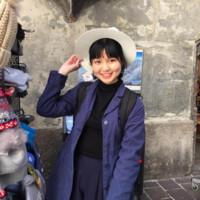Students of the Smart and SHARED Cities minor enjoy participating in the minor and find the programme to have added value to their academic careers. The evaluation of the minor has been positive year after year. Students seem to specifically appreciate working with people from different backgrounds and disciplines. Additionally, the minor's lecturers are considered very enthusiastic, experts in their fields and excellent teachers. This is reflected in the comments in the student evaluation of the minor for the academic year 2022-2023, presented below:
'The minor Smart and SHARED Cities provided me with extra in-depth information about the digitalization of cities. The process is ongoing and very relevant for the future. The topics are very interesting: urban data science, big data, AI, technology and so on.'
'The programme is very diverse, with nice activities that inspired me. It was interesting to see a lot of different opinions and perspectives throughout the minor. In addition, there was a safe, pleasant atmosphere in the classroom.'
'Being active in communicating and doing research for an actual business provides more insight in a more professional setting instead of only doing theoretical study/research. I liked the fact that we actually got to solve a real problem for a real project commissioner. '
Student testimonials
Huyen Vu - Student Management of International Social Challenges, Erasmus Universiteit Rotterdam
I have a strong interest in anything related to innovation, such as big data and cyber security. When I found out about the minor ‘Smart and Shared Cities’ I immediately had this gut feeling that I had to subscribe. The minor touches upon current developments, such as the increasing amount of data and how to use this information in a smart way. Not just on a theoretical level as we also looked at applications in cities.
'Social studies are important for the academic embedding of the project, but also the idea framing. I noticed the people from Delft are very creative in presenting results.'
I really liked the combination of the three universities. Not only did I meet a lot of different people with various backgrounds, but also everybody brought different skills. The people from TU Delft for example brought more hard skills related to technology, while the students from Leiden and Erasmus have backgrounds in business or public administration. Social studies are important for the academic embedding of the project, but also the idea framing. I noticed the people from Delft are very creative in presenting results. A girl in my group made a nice video about our project. I think we complimented each other very well.
“
Patryk Jarmakowicz - Student Management of International Social Challenges, Erasmus Universiteit Rotterdam
For me, the minor ‘Smart and SHARED Cities’ was already my second minor. I didn’t need the credits, so that’s why my idea was to only finish the program if I really liked it. I ended up finding it very interesting and refreshing. The teaching methods were different from my program as it is highly interactive. The assignments are always based on what we learned during the lectures. I didn’t have to do a single exam and this was completely new to me.
'You work together with students who have completely different backgrounds. This also means we all tend to approach things differently.'
The design project especially stood out for me. We were working on different concepts in order to make mobility more accessible in Helmond, which is part of Brainport Eindhoven. The design process felt really creative. You work together with students who have completely different backgrounds. This also means we all tend to approach things differently. In my group, I had an architecture student from Delft. Whenever I would come up with an idea he would say “Patrick, give me the Ipad” and in the blink of an eye, he would sketch it on a mirror board. It was nice to see how architecture students work and to learn from them at the same time.

